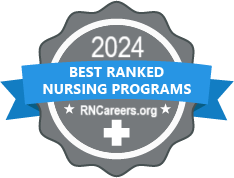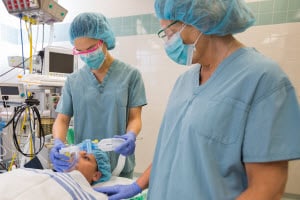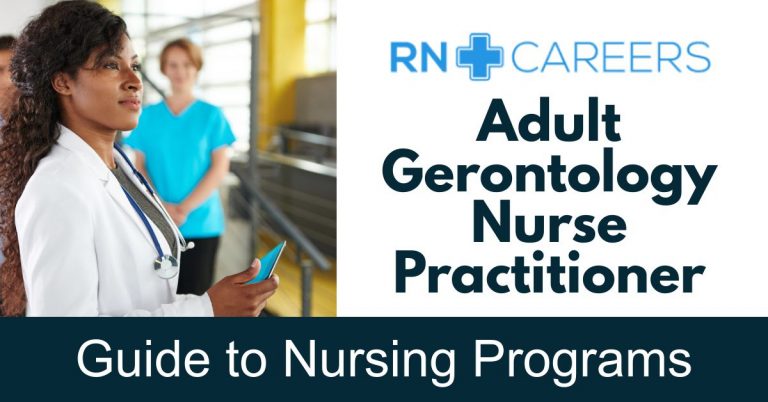What is an APRN vs NP
Advanced Practice Registered Nurses (APRNs) and Nurse Practitioners (NPs) represent pivotal roles in the healthcare system, delivering a broad spectrum of healthcare services across various settings. These professionals are distinguished by their advanced clinical training, education, and the scope of practice, which enables them to offer high-quality care to diverse patient populations.
The Scope of Practice
- Comprehensive Care: Both APRNs and NPs assess, diagnose, and manage health issues, extending to prescribing treatments.
- Prescriptive Authority: This varies by state, with some allowing full independence and others requiring physician collaboration.
Specialization and Patient Populations
- Patient Groups: Specializations cover neonates to the elderly, focusing on specific healthcare needs.
- Care Settings: They play critical roles in both primary and acute care, managing everything from preventive care to complex health emergencies.
Education and Clinical Responsibilities
- Pathway to Practice: Starts with a Bachelor of Science in Nursing (BSN), progressing to advanced degrees (MSN or DNP) in chosen specialties.
- Skills Development: The curriculum focuses on evidence-based care, patient assessment, and clinical management.
| Aspect | APRNs | NPs |
|---|---|---|
| Scope of Practice | – Comprehensive care including assessment, diagnosis, and management of health issues. – Prescribing medications and treatments. | – Similar to APRNs, with a focus on assessment, diagnosis, and management of health issues. – Prescribing medications and treatments. |
| Prescriptive Authority | – Varies by state; ranges from full independence to requiring a collaborative agreement with a physician. | – Varies by state; some states allow full practice authority, while others require physician oversight. |
| Specialization and Patient Populations | – Serve specific patient populations from neonates to the elderly. – Specializations focus on areas such as family practice, pediatrics, gerontology, and psychiatric-mental health. | – Specializations cater to specific healthcare needs of diverse patient groups. – Often serve as primary care providers in family practice or specialize in areas like pediatrics, geriatrics, and mental health. |
| Care Settings | – Operate in both primary and acute care settings. – Manage preventive care to complex health emergencies. | – Similar to APRNs, providing critical care in both primary and acute settings. – Often the first point of contact in primary care, managing preventive care and health education. |
| Education and Clinical Responsibilities | – Begins with a BSN, followed by advanced degrees (MSN or DNP) in chosen specialties. – Curriculum focuses on advanced clinical practice, including evidence-based decision-making and patient care. | – Requires a BSN as a starting point, followed by specialized NP programs leading to MSN or DNP. – Education emphasizes clinical roles, evidence-based care, and patient assessment. |
The Importance of APRNs and NPs in Healthcare
- Patient Outcomes: They are pivotal in delivering evidence-based care, reducing hospital readmissions, and managing chronic diseases.
- Family Practice and Specialties: From primary care to specialties like psychiatry and anesthesia, APRNs and NPs fill critical healthcare gaps.
- Rising Demand: Factors like an aging population and physician shortages in rural areas underscore the growing need for these professionals.
Impact on Healthcare
- Access and Cost: APRNs and NPs enhance access to healthcare, especially in underserved areas, contributing to cost reduction by minimizing the need for hospital-based care.

APRN vs NP
The Path to Becoming an APRN or NP
Becoming an Advanced Practice Registered Nurse (APRN) or Nurse Practitioner (NP) involves a challenging yet rewarding journey of education, specialization, and commitment. Here’s how the path unfolds:
Educational Requirements: From BSN to Advanced Degrees
- Bachelor of Science in Nursing (BSN)
- Objective: Gain essential nursing knowledge and clinical experience.
- Next Step: Pass the NCLEX-RN to become a Registered Nurse (RN).
- Advanced Degrees (MSN or DNP)
- Master of Science in Nursing (MSN): Prepares for clinical roles and leadership.
- Doctor of Nursing Practice (DNP): Focuses on advanced clinical practice and integrating evidence-based practice in healthcare.
Nurse Practitioner Programs: Specializing Your Career
- Specializations: Options include Family Nurse Practitioner (FNP), Psychiatric-Mental Health Nurse Practitioner (PMHNP), Pediatric Nurse Practitioner, and more.
- Accreditation: Look for programs accredited by reputable organizations such as the American Academy of Nurse Practitioners (AANP) to ensure quality education and preparation for healthcare challenges.
Certification: Marking Professional Achievement
- Process: Achieve board certification in your specialty after completing an accredited NP program and passing a certification exam (e.g., by the American Nurses Credentialing Center (ANCC) or the American Midwifery Certification Board (AMCB)).
- Significance: Validates expertise, dedication, and competence in the specialty area. Often required for licensure as an APRN in many states.
Key Takeaways in Your Journey:
- Start with a BSN: The foundation of your nursing career.
- Choose Your Path: MSN for clinical roles and leadership, DNP for advanced clinical practice.
- Specialize: Deepen your expertise in areas like FNP, PMHNP, or Pediatric Nursing.
- Achieve Certification: A testament to your expertise and a requirement for advanced practice.
Embarking on this path not only propels your career forward but also significantly contributes to the healthcare system’s capacity to meet diverse and complex patient needs.
Types of APRNs: Exploring the Specialties
Advanced Practice Registered Nurses (APRNs) encompass a variety of specialized roles, each contributing uniquely to the healthcare landscape. Here, we delve into the specialties of Clinical Nurse Specialists (CNSs), Nurse Midwives, and Nurse Anesthetists, examining their roles, education, and impact on patient care.
Clinical Nurse Specialists (CNS) and Their Role in Nursing Practice
- Expert Advice and Support: CNSs provide specialized support and expertise in specific areas of healthcare, such as pediatrics, geriatrics, or oncology. They are pivotal in developing nursing practices, improving healthcare delivery, and enhancing patient outcomes.
- Impact on Patient Care: Through evidence-based practice, CNSs lead initiatives to improve quality of care and patient safety. Their role often extends to educating and mentoring nursing staff, contributing significantly to clinical excellence.
Nurse Midwives and Nurse Anesthetists: Specialized APRN Roles
- Certified Nurse Midwives (CNMs):
- Education Path: CNMs are required to complete a Master’s degree in Nurse Midwifery, which includes both classroom education and clinical practice.
- Practice Authority: They have full practice authority in most states, allowing them to provide comprehensive women’s health care, including prenatal, birth, postpartum, and gynecological services.
- Patient Populations: CNMs focus on childbearing women and their infants, emphasizing natural childbirth and personalized, holistic care.
- Certified Registered Nurse Anesthetists (CRNAs):
- Education Path: CRNAs must obtain a Master’s or Doctorate degree in Nurse Anesthesia and complete extensive clinical training.
- Practice Authority: They often have significant autonomy, working in collaboration with surgeons, anesthesiologists, and other healthcare professionals to provide anesthesia and pain management services.
- Patient Populations: CRNAs serve a broad patient population, from surgical patients to those requiring pain management for chronic conditions.
Certified Nurse Midwife (CNM) vs. Certified Registered Nurse Anesthetist (CRNA): A Closer Look
| Aspect | Certified Nurse Midwife (CNM) | Certified Registered Nurse Anesthetist (CRNA) |
|---|---|---|
| Roles and Responsibilities | Provide comprehensive reproductive health care, including prenatal, birth, and postnatal care. | Provide anesthesia and pain management services before, during, and after surgical procedures. |
| Certification Requirements | Completion of a CNM program and passing the American Midwifery Certification Board (AMCB) exam. | Completion of a CRNA program and passing the National Certification Examination for Nurse Anesthetists. |
| Practice Settings | Hospitals, birthing centers, private practices, and home birth services. | Hospitals, surgical centers, pain management clinics, and dental offices. |
| Patient Care Focus | Holistic and individualized care for childbearing women and their infants. | Anesthesia care and pain management for patients undergoing surgical procedures or suffering from chronic pain. |
This comparison underscores the distinct yet equally vital roles that CNMs and CRNAs play within the healthcare system. Each specialty brings a unique set of skills, knowledge, and care philosophy, catering to specific patient needs and contributing to the diversity and richness of nursing practice.
NP vs. APRN: Understanding the Distinctions
The terms Nurse Practitioner (NP) and Advanced Practice Registered Nurse (APRN) are often used interchangeably within the healthcare community, yet they encapsulate distinct roles, responsibilities, and scopes of practice. Understanding these distinctions is crucial for healthcare professionals, patients, and students considering a career in nursing.
Scope of Practice and Autonomy: NP and APRN Compared
- Legal and Professional Nuances:
- Practice Authority: APRNs, including NPs, have varying levels of practice authority depending on the state. Some states allow full practice authority, while others require physician oversight.
- Independent Practice: NPs are more likely to have full practice authority, allowing them to assess, diagnose, and manage patient care independently in some states.
- Prescriptive Authority: Both NPs and APRNs may have the authority to prescribe medications, but the extent can vary by state, with some requiring a collaborative agreement with a physician.
Specialty and Sub-Specialty Fields for NPs and APRNs
Both NPs and APRNs have the opportunity to specialize, impacting their focus in patient care and healthcare delivery:
- Family Practice: Providing comprehensive healthcare across the lifespan.
- Pediatric Care: Specializing in the health and illnesses of children from infancy through adolescence.
- Mental Health: Focusing on the diagnosis and treatment of mental health disorders.
- Acute Care: Working with patients who have critical, often life-threatening conditions.
Higher Than an RN: The Advanced Practice Journey
The journey from RN to APRN or NP involves advanced education, clinical experience, and certification, distinguishing these roles from traditional RN positions:
- Educational Pathways:
- RNs typically hold an Associate Degree in Nursing (ADN) or a Bachelor of Science in Nursing (BSN).
- APRNs and NPs must obtain a Master of Science in Nursing (MSN) or Doctor of Nursing Practice (DNP).
- Clinical Hours: APRN and NP programs require significantly more clinical practice hours in a specialized area than RN programs.
- Certification and Skills:
- Certification: Obtained through nationally recognized boards specific to their specialty.
- Advanced Clinical Skills: APRNs and NPs possess skills and knowledge that enable them to perform complex diagnostic and therapeutic procedures.
Understanding the nuances between NPs and APRNs is essential for those navigating the healthcare system or considering a career in nursing. Each path offers a unique set of opportunities to specialize and serve various patient populations, with the shared goal of enhancing healthcare delivery and patient outcomes.
Career Pathways: NPs and APRNs in the Healthcare System
The landscape for Nurse Practitioners (NPs) and Advanced Practice Registered Nurses (APRNs) within the healthcare system is one of dynamic growth and evolving challenges. These roles are increasingly recognized for their contributions to healthcare delivery, patient care, and the broader healthcare system.
Opportunities and Challenges for APRNs and NPs
- Expanding Opportunities:
- Diverse Settings: APRNs and NPs practice in a variety of settings, including hospitals, private practices, outpatient clinics, and telehealth services.
- Specialization: Opportunities in specialized fields like family healthcare, psychiatry, and acute care are growing, allowing APRNs and NPs to focus on areas of interest.
- Leadership Roles: Many APRNs and NPs hold leadership positions, contributing to healthcare policy, education, and administration.
- Challenges:
- Full Practice Authority: Achieving full practice authority is a significant challenge in some states, limiting the ability of APRNs and NPs to practice to the full extent of their education and training.
- Healthcare Legislation: The healthcare legislative landscape is continually changing, impacting scope of practice, reimbursement rates, and the roles APRNs and NPs can play in patient care.
- Interprofessional Collaboration: Navigating relationships and roles within healthcare teams can be complex, especially in environments with traditional hierarchies.
Impact on Patient Care: The Value of Specialized Nursing Practice
- Improved Access to Healthcare:
- APRNs and NPs significantly contribute to expanding access to healthcare, particularly in underserved or rural areas where healthcare providers may be scarce.
- Specialized NPs, such as family nurse practitioners and psychiatric nurse practitioners, offer services that might otherwise be unavailable to certain communities.
- Patient Education and Chronic Disease Management:
- The emphasis APRNs and NPs place on patient education promotes better health outcomes and empowers patients to manage their health conditions effectively.
- Their expertise in managing chronic diseases helps reduce complications, improve quality of life, and decrease healthcare costs by minimizing the need for hospitalizations and emergency care.
APRNs and NPs play a crucial role in the modern healthcare system, offering specialized skills that meet the complex needs of diverse patient populations. While they face challenges related to practice authority and evolving healthcare policies, their contributions to patient care, healthcare access, and the overall improvement of health outcomes are undeniable. As the demand for healthcare services continues to grow, the role of APRNs and NPs will remain essential in shaping the future of healthcare delivery.
Certification and Licensure: The Final Steps to Practice
Achieving certification and licensure represents the culmination of rigorous education and training for Advanced Practice Registered Nurses (APRNs) and Nurse Practitioners (NPs). These final steps are not just formalities but are crucial in ensuring that these professionals are well-prepared to provide high-quality care.
Certified Nurse: The Path to Recognition
- Meeting Certification Requirements:
- Education: Candidates must complete an accredited program in their specialty area, which could be a Master of Science in Nursing (MSN), a Doctor of Nursing Practice (DNP), or a post-master’s certificate program.
- Examination: After completing their educational program, candidates must pass a certification exam administered by a recognized certifying body, such as the American Nurses Credentialing Center (ANCC) or the American Academy of Nurse Practitioners Certification Board (AANPCB).
- Licensure: With certification in hand, APRNs must then obtain licensure in their state, which may have additional requirements such as a background check or specific clinical experience.
- Value of Certification:
- Certification affirms an APRN’s or NP’s expertise in a specific area of practice, enhancing their professional credibility.
- It also fosters patient trust, as certification signals to patients that their healthcare provider meets national standards for knowledge and expertise in their specialty.
The Role of Clinical Experience in APRN and NP Certification
- Clinical Hours and Practice Hours:
- Accredited APRN and NP programs require a significant number of clinical hours—ranging from 500 to more than 1,000 hours—depending on the specialty.
- These hours provide hands-on experience in patient care, allowing candidates to apply theoretical knowledge in real-world settings under the supervision of experienced practitioners.
- Underpinning Expertise:
- The depth and breadth of clinical experience are critical in preparing APRNs and NPs for the complexities of patient care. It ensures that they are not only proficient in clinical skills but also in decision-making, patient communication, and interdisciplinary collaboration.
- This extensive preparation underscores the expertise of APRNs and NPs, positioning them as vital members of the healthcare team who are capable of managing diverse patient populations and complex health conditions.
The certification and licensure process for APRNs and NPs is designed to ensure that these professionals are equipped with the necessary skills, knowledge, and experience to provide high-quality care. Certification not only validates their expertise but also plays a crucial role in building patient trust and advancing their professional careers. The clinical experience gained during their preparation is invaluable, forming the foundation of their practice and enabling them to make a significant impact on healthcare outcomes.
Conclusion: The Future of Nursing Practice for APRNs and NPs
The landscape of healthcare and nursing is continuously evolving, with Advanced Practice Registered Nurses (APRNs) and Nurse Practitioners (NPs) at the forefront of this change. As we look to the future, several trends and predictions suggest an exciting and challenging pathway for these professionals.
The Evolving Landscape of Nursing: Trends and Predictions
- Greater Autonomy: The trend towards full practice authority for NPs and other APRNs in more states is likely to continue, granting these professionals greater autonomy in patient care. This shift recognizes the critical role APRNs and NPs play in healthcare delivery, especially in underserved areas.
- Technological Advancements: Technology will increasingly impact the practice of APRNs and NPs, from telehealth services expanding access to care to AI and machine learning tools that assist with diagnosis and treatment plans. These advancements promise to enhance patient care but also require APRNs and NPs to adapt and integrate new skills into their practice.
- Demand for Advanced Practice Nurses: The demand for APRNs and NPs is expected to grow significantly. The Bureau of Labor Statistics projects much faster than average job growth in these fields due to an aging population, an increased emphasis on preventive care, and healthcare reform initiatives that emphasize cost-effective solutions to healthcare delivery.
Making the Choice: Is Becoming an NP or APRN Right for You?
For nurses considering a move into advanced practice, the decision is both personal and professional. Here are some factors to consider:
- Desire to Specialize: Advanced practice roles offer the opportunity to specialize in areas like family practice, psychiatry, or acute care. If you have a strong interest in focusing your nursing practice on a specific patient population or area of healthcare, becoming an APRN or NP can provide that pathway.
- Commitment to Advanced Education: Pursuing an APRN or NP role requires a commitment to further education, including obtaining a Master’s or Doctoral degree. This journey involves both time and financial investment but is essential for developing the advanced clinical skills and knowledge base required.
- Personal and Professional Rewards: Advanced practice roles offer the chance to have a profound impact on patient lives and the healthcare system. These roles can be incredibly rewarding, offering higher levels of responsibility, the ability to make critical decisions about patient care, and opportunities for leadership within the healthcare community.
The future of nursing for APRNs and NPs is bright, marked by expanding roles, increasing autonomy, and the potential to significantly impact healthcare delivery and patient outcomes. For those drawn to these challenges and rewards, becoming an APRN or NP represents a compelling career path that promises both personal fulfillment and professional advancement.
- About the Author
- Latest Posts
After graduating with a degree in English Literature from UCLA, Jeff published four editions of the World Wide Web Yellow Pages by Barnes and Noble, and several editions of the Best of the Web. He’s worked as an executive at both startup and mature companies including CareerPath.com and Microsoft. With nearly three decades of publishing and business development expertise, he now puts that experience to use operating RNCareers.org to help future nursing students get reliable information on registered nursing careers.






